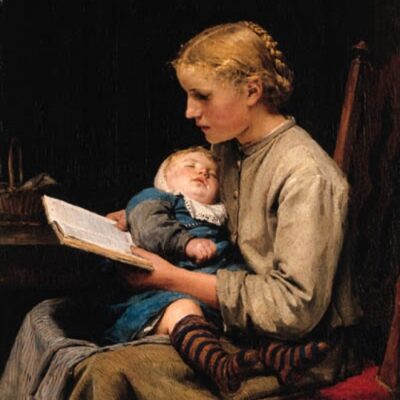Infinite Country by Patricia Engel
When American Dirt was published by Flatiron books (a division of Macmillan), there was a storm of protest from hundreds of writers. One of their many concerns involved the discriminatory practices of some top-selling publishing companies. Authors of color explained that narratives of their personal immigration experiences had been previously turned down by publishing companies that informed them no one was interested in “those types of stories.” Then, Macmillan went all out for a book written by a white woman about a Mexican mother and son escaping cartel violence in Mexico. Macmillan claimed American Dirt was “a definitive chronicle of the migrant experience.” Writers disagreed and met with the “publishing gatekeepers” urging them to acquire well-written and authentic immigration stories that included what the author had seen, experienced, and researched.
Patricia Engel, who teaches in the MFA program at the University of Miami, has gifted us with just such a story in Infinite Country. The daughter of Colombian immigrants, she knows Colombia and the United States very well, and it shows in her complex and brutally honest portrayal of life in both countries. She describes a family’s separation, different citizenship statuses and varied locations. No family member can fully understand the others, and they keep secrets from each other as they gauge what the others can handle knowing. They struggle for years after immigration laws have pulled them apart.
Infinite Country was published by Avid Press in 2021, and represents the genres of literary, contemporary, and historical fiction. Throughout the narrative the author creates an exciting and unnerving picture of the daily reality of being undocumented in America. Although one character’s narrative takes place in the present-day, others’ stories are rooted in the past or deal with internal reflections highly influenced by past events.
Patricia Engel writes in third person limited voice with the perspective in each chapter attached to the thoughts and feelings of just one character. Her novel not only offers memorable characters but also vivid descriptions of the mountainous Colombian landscape, the complexity of Bogotá and the essence of being an immigrant. In the following passage, she compares present-day Bogotá to the city twenty years ago.
The Bogotá of Elena’s and Mauro’s childhoods was another city from the one Talia knew. To the child, bombings and kidnappings were mostly faraway occurrences in guerilla-occupied territories or distant campo villages, death tallies mere embers on news feeds. The hurricane of violence of the eighties and nineties was a specter in magazine retrospectives, horror written with near nostalgia, depicted on telenovelas. Nothing Talia, sheltered as she was, believed she needed to fear. In Bogotá, a girl of Talia’s age could almost forget the terror, pretend it was happening in some other country across the continent, that the faces of the disappeared had nothing in common with her schoolmates’ families, and the hardened expressions of children kidnapped or orphaned into fighting the nameless tentacled war could not have just as easily been hers.
Mauro and Elena’s city of the clouds was now a place where tourists came to dance and drink without the threat of death. The last broad-scale civilian-targeted bombing the capital had seen came the year before Talia was born, when their family was already on the northern continent, but her parents’ generation was raised in a time when the Andean air tasted of gunfire. [p. 15]
In Infinite Country, Patricia Engle brilliantly layers one family’s immigration story with Andean, urban, family, and migration mythology. In an interview with Edwidge Danticat, she points out that so many of the stories of immigrants are connected to the land and “the point of origin.” For example, Infinite Country begins in Bogotá which is in the Andes Mountains on the equator. It’s a very specific landscape which you can only feel by going there. The physical experience of being in that particular place is what Elena and Mauro lose when they migrate to “the promised land.” It is what Elena in particular still holds in her body, the homeland to which she yearns to return.
Even though Infinite Country is about one family, the themes are universal. One of the threads that the author weaves throughout the book is the importance of inherited narratives to those who leave their homeland and travel to a new country. In her story, inherited narratives—the stories characters tell themselves and each other about their lives—help them make sense of their lives and become essential to the construction of their personal identities. The author conveys through her characters that the stories family members share become very much a part of how we define ourselves.
Because so many immigrants were forced to leave their homelands for safety reasons, traumatizing events are also part of immigration stories and manifest in our DNA, even skipping generations. During the interview, Edwidge Danticat references the poem “Home” by Warsan Shire in which the poet writes:
no one leaves home unless
home is the mouth of a shark
you only run for the border
when you see the whole city running as well
In her novel, Patricia Engel shines a light on what is lost when individuals leave their homelands and relatives behind. These losses, she believes, are often mitigated or ignored completely. She knows this first-hand as her mother came to the United States with her father, similar to the characters of Elena and Mauro in Infinite Country, in order to gamble on a better life and a better future for themselves and for their children. She points out that “The nuances and the details of our family’s migration story are different from those in my novel. But what we do have in common is that loss of homeland, all the doubts and the longing and wondering if you made the right decision in disrupting your family history and leaving your homeland to begin a new life in another one” (Immigration Is An Ongoing Process In Patricia Engel’s ‘Infinite Country‘).
For information about Columbian-American novelist Patricia Engel, I highly recommend Infinite Country: A Virtual Evening with Patricia Engle and Edwidge Danticat sponsored by Book & Books.
















